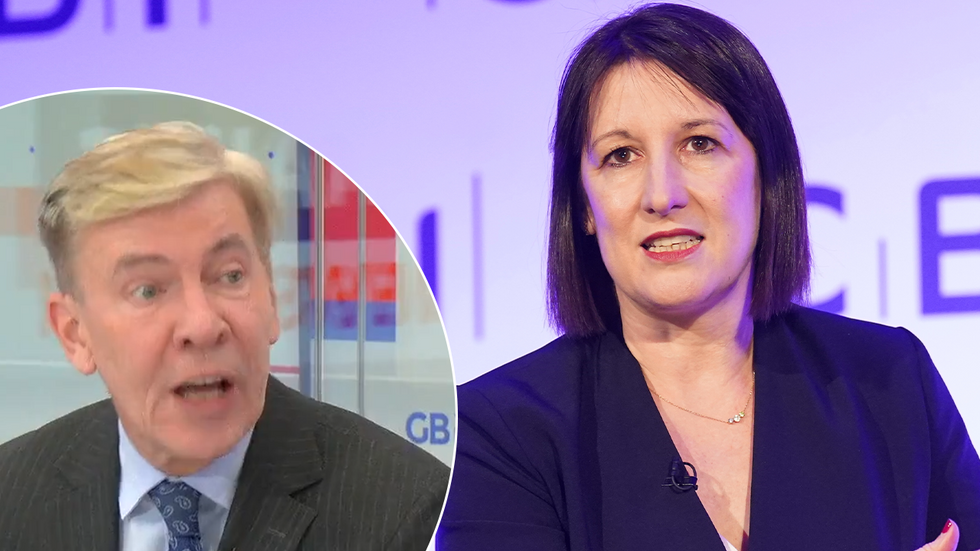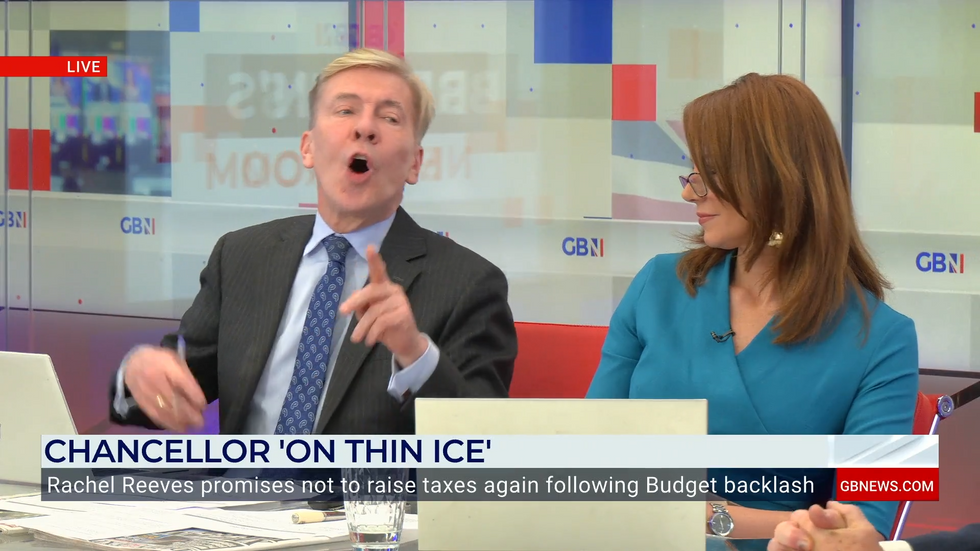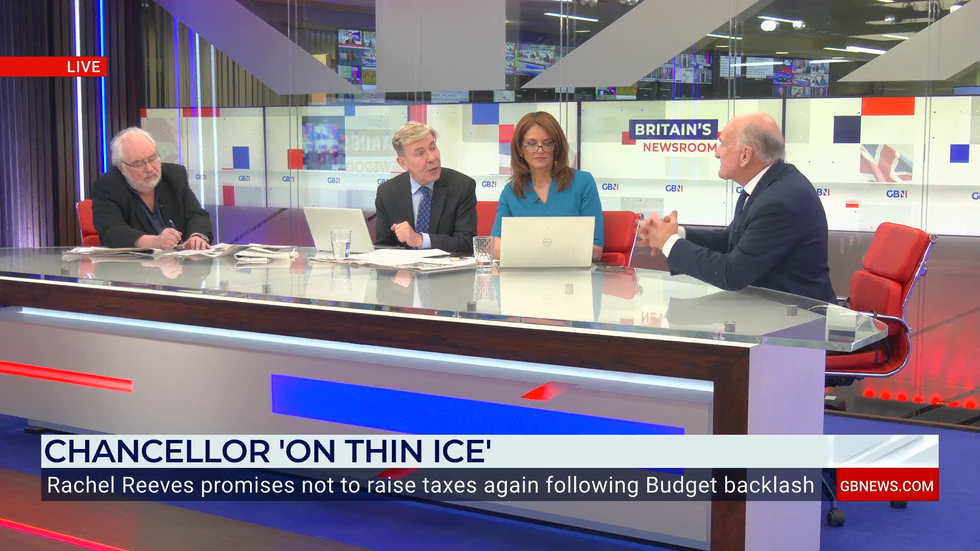‘Dishonest!’ Rachel Reeves blasted by Andrew Pierce as Chancellor’s tax pledge thrown into doubt
Rachel Reeves’ pledge not to raise taxes again was criticised by GB News’s Andrew Pierce amid suggestions they actually will.
Labour Cabinet minister Jonathan Reynolds yesterday refused to rule out further tax rises, a message echoed by Sir Keir Starmer at today’s PMQs session.
Speaking on GB News, Andrew hit out at the “dishonest” Labour Government as he clashed with a former MP for the party, Stephen Pound.
“They told us before the election, there would be no tax rises”, he said.

“There has been £40bn worth of tax rises. They said there would be no increase in national insurance.
“Now they are saying it only applies to employers, not employees. It’s dishonest.”
LATEST DEVELOPMENTS
- Farage weighs in after Elon Musk reveals ‘secret’ twist in debanking scandal – ‘It’s not just me!’
- FIVE broken promises that sparked viral General Election petition as founder gets call from Farage
- Fury as British taxpayers told to pay up for woke £80K ‘diversity and inclusion’ job

Pound insisted there would not be any further tax rises – saying Rachel Reeves’s word is the one that counts.
“Rachel Reeves is the Chancellor of the Exchequer, Jonathan Reynolds is the Business Secretary, her word overrides his”, he said.
“You’re damning someone for what they’re not saying. It’s Stalinist.”
He added: “In a couple of years time, we will be looking back at these times thinking ‘they were tough, but it had to be done’.”

Economists have cast significant doubt on Rachel Reeves’ pledge not to raise taxes again, suggesting the commitment could prove difficult to maintain.
Ben Zaranko, Associate Director at the Institute for Fiscal Studies, warned it would be “extremely difficult” to stick to present spending plans with mounting pressures on the public sector.
“It wouldn’t be at all surprising if those plans get topped up,” Zaranko said.
The economic expert noted that the Chancellor’s ability to avoid future tax rises would depend heavily on economic growth.
“The question then is whether the Chancellor gets lucky on growth or whether she has to come back with more tax rises,” he added.
Paul Dales, chief UK economist at Capital Economics, warned the pledge could “come back to haunt her” as the Budget’s reception has been poor.
“She needs to convince everyone that it was a one-off so people can move forward without worrying about a repeat,” he said, noting that rising government borrowing costs were already reducing her fiscal headroom.
Julian Jessop, economics fellow at the Institute of Economic Affairs, said the pledge “lacks credibility” given Labour’s fiscal rules.
Business Secretary Jonathan Reynolds appeared to soften the commitment, suggesting only that there would not be another tax rise “comparable” to the current £40 billion increase.
This position, Jessop noted, “still leaves the door open for many smaller rises.”

